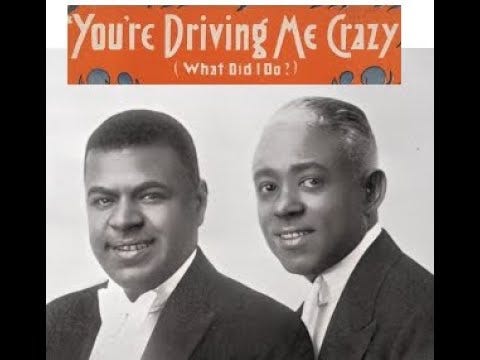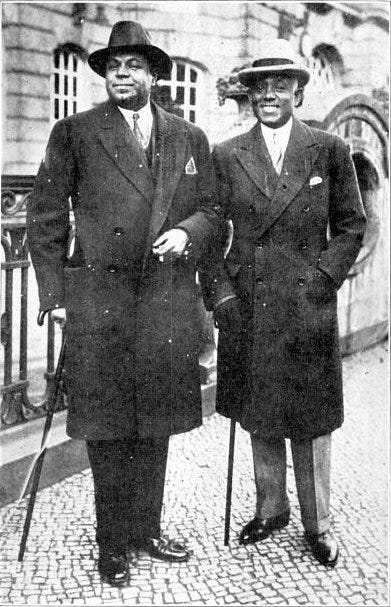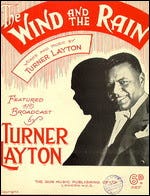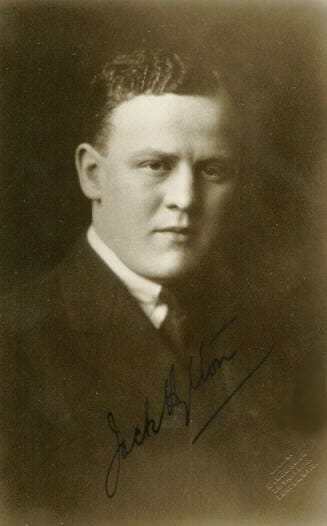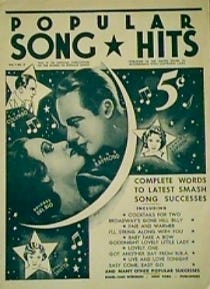Layton & Johnstone
BIRTHDAYS
1894
Turner Layton
Turner Layton (July 2, 1894 – February 6, 1978), born John Turner Layton, Jr., was an African-American songwriter, singer and pianist. He frequently worked with Henry Creamer.
Turner Layton (l) and Clarence Johnstone (r) in 1933
Life
Born in Washington, D.C., in 1894, he was the son of John Turner Layton, "a bass singer, music educator and hymn composer." After receiving a musical education from his father, he attended the Howard University Dental School, later coming to New York City in the early 1900s, where he met future songwriting partner, lyricist Henry Creamer. Layton is best known for his many compositions with Creamer, the best known of which is the standard "After You've Gone", written in 1918 and first popularized by Sophie Tucker.
The two contributed music and lyrics to many Broadway shows, including the Ziegfeld Follies of 1917, 1921 and 1922, Three Showers (1920), Some Party (1922) and Creamer's own Strut Miss Lizzie (1922).
Beginning in 1924, Layton found major popular success in England with Clarence "Tandy" Johnstone as a member of the group Layton & Johnstone, quickly earning a reputation as a cabaret act, with the pair allegedly selling over "10 million records". Layton split with Johnstone in 1935 (after Johnstone had been named in Albert Sandler's divorce), with Johnstone returning to New York and continuing to perform with significantly less success. Layton continued to perform in England. An elegant song stylist, he held a regular, successful spot over the years at the Café de Paris, a London club, until his retirement in 1946. He died in London in February 1978.
Recordings
Two albums of Layton & Johnstone recordings have been issued on CD in the UK - on ASV Living Era (CD AJA 5426) and Flapper (PAST CD 9712). Two compilation albums of recordings by Layton have been released on CD.
Notable compositions
"It Must Be Love"
"'Way down Yonder in New Orleans"
"Goodbye Alexander, Goodbye Honey Boy"
“Who?”
READ MORE:
The eventful life of singer and composer Turner Layton
1892
Jack Hylton, Piano/Leader
b. Great Lever, England, d. Jan. 29, 1965, London, England.
Jack Hylton (born John Greenhalgh Hilton; 2 July 1892 – 29 January 1965) was an English pianist, composer, band leader and impresario.
Hylton rose to prominence during the British dance band era, being referred as the "British King of Jazz" and "The Ambassador of British Dance Music" by the musical press, not only because of his popularity which extended throughout the world, but also for his use of unusually large ensembles for the time and his polished arrangements. He mostly retired from the music industry after 1940, becoming a successful theatrical businessman until his death.
Lancaster University Library — Jack Hylton Archive
1905
Harlan Leonard, Tenor Sax/Leader
b. Kansas City, MO, d. 1983.
A professional musician from the age of 17, he joined Benny Moten's orchestra in 1923, where he led the reed section until 1931. In 1931 he and Thamon Hayes formed the Kansas City Skyrockets, which included trumpeter Ed Lewis, trombonist Vic Dickenson, and pianist Jesse Stone. After disputes with the Chicago local of the American Federation of Musicians the band broke up. Leonard then formed a new band, Harlan Leonard and his Rockets.
Benny Moten’s Orchestra featuring Harlan Leonard - clarinet, alto saxophone
Charlie Parker played in this band for five weeks, but was fired by Leonard for lack of discipline. The band's music is considered transitional between swing and bebop. The band broke up during the Second World War, and Leonard left professional music.
Benny Moten’s Orchestra featuring Harlan Leonard - clarinet, alto saxophone
1909
Katherine "Kay" Weber, vocalist/piano
b. Ellinwood, KS, USA.
After graduating from a Roman Catholic parochial school, she enrolled in an all-girl junior college in Leavenworth, KS, where she also took organ lessons. After graduating from the junior college, she enrolled in the Lamont School of Music at the University of Denver, majoring in drama, and minoring in piano and voice. She also found a 15-minute radio spot every Thursday at 3 p.m., on Denver radio station KOA.
The show was 'Songs At The Piano'. Her success led to many other jobs on various radio shows. In 1933, Weber graduated from the Lamont School of Music. Her first 'big band' job came when she sang briefly in Victor Schilling's band. After Schilling, Weber sang briefly with another Denver-based group, the Donnelly-James Orchestra. In early 1934, singer Smith Ballew's Band came through Denver. Glenn Miller was the band's trombonist/arranger - and for all intents and purposes, the true leader. Glenn was a University of Colorado alumnus.
When the Smith Ballew band had some trouble with its girl singer, Glenn auditioned Weber and she became the band's new vocalist. At this same time, Roc Hillman and two of his college buddies, saxophonist Arthur "Skeets" Herfurt and trombonist Don Mattison also joined Ballew's outfit. These three men not only played, with also sang as a novelty singing trio in the band. The Bellew band was very short-lived.
They went to New York for a gig, but found that the Club had already folded. (In July 1935, Smith Ballew retired from the bigband business moved to California, and found work in the Hollywood studios as a singing cowboy star in "B" Westerns films. On May 2, 1984, at age 82, Bellew died in his home state of Texas.)
Kay Weber was one of the very prominent female vocalists at the very beginnings of the bigband era, her vocals contributed greatly to the original Dorsey Brothers orchestra, then to the Jimmy Dorsey orchestra when Tommy left in a 'huff', and also to Bob Crosby's new orchestra.
Jazz Connection Magazine
Notable Events Occurring On This Date Include:
1929.
Dancer Ruby Keeler starred in Florenz Ziegfeld's production "Show Girl" (in New York city).
Songs Recorded/Released On This Date Include:
1923
Lena Wilson - Bleeding Hearted Blues
Sara Martin - Nobody In Town Can Bake A Sweet Jelly Roll Like Mine
1925
Fowler's Washboard Wonders - Chitterlin' Strut
1928
Paul Whiteman and his Orchestra - Pickin' Cotton
Tiny Parham and his Musicians - Cuckoo Blues
Chicago Footwarmers - Brush Stomp
Fred Hall and his Sugar Babies - On The Night We Did The Boom Boom By The Sea
Clarence Williams - Organ Grinder Blues
1930
Red Nichols' Five Pennies - Sweet Georgia Brown
LYRICS:
No gal made has got a shade on Sweet Georgia Brown
Two left feet, oh so neat, has Sweet Georgia Brown
They all sigh and want to die for Sweet Georgia Brown
I'll tell you just why, you know I don't lie not much
It's been said she knocks 'em dead when she lands in town
Since she came why it's a shame how she cools them down
Fellas she can't get must be fellas she ain't met
Georgia claimed her, Georgia named her Sweet Georgia Brown
No gal made has got a shade on Sweet Georgia brown
Two left feet, oh so neat, has Sweet Georgia Brown
They all sigh and want to die for Sweet Georgia Brown
I'll tell you just why, you know I don't lie not much
All those gifts, those courters give to Sweet Georgia Brown
They buy clothes at fashion shows with one dollar down
Oh boy, tip your hat, oh joy, she's the cat
Who's that, mister? It ain't a sister, Sweet Georgia Brown
Special Thanks To: The Big Band Database, DAHR, JAZZ LIVES, The Red Hot Jazz Archives, Wikipedia, YouTube, Rich Conaty, Vince Giordano, Ian House, Geri Reichgut, Scott Yanow, and all those who have provided content, education, images and videos for this site.

